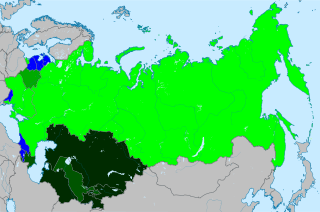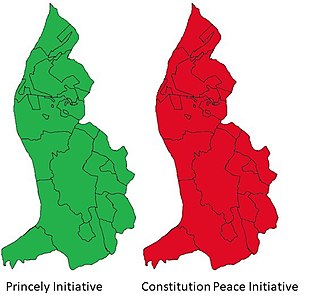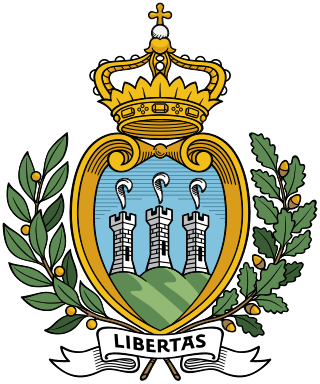
Referendums in the United Kingdom are occasionally held at a national, regional or local level. Historically, national referendums are rare due to the long-standing principle of parliamentary sovereignty. There is no constitutional requirement to hold a national referendum for any purpose or on any issue however the UK Parliament is free to legislate through an Act of Parliament for a referendum to be held on any question at any time.

This is a list of referendums related to the European Union, or referendums related to the European Communities, which were predecessors of the European Union. Since 1972, a total of 48 referendums have been held by EU member states, candidate states, and their territories, with several additional referendums held in countries outside the EU. The referendums have been held most commonly on the subject of whether to become a member of European Union as part of the accession process, although the EU does not require any candidate country to hold a referendum to approve membership or as part of treaty ratification. Other EU-related referendums have been held on the adoption of the euro and on participation in other EU-related policies.

A constitutional referendum was held in France on 5 May 1946. Voters were asked whether they approved of a new draft Constitution proposed by the Constituent Assembly elected in 1945.

A referendum on the future of the Soviet Union was held on 17 March 1991 across the Soviet Union. It was the only national referendum in the history of the Soviet Union, although it was boycotted by authorities in six of the fifteen Soviet republics.
Canadian liquor plebiscites, held in 1920 under the Canada Temperance Act and the Dominion Elections Act, were referendums on the strengthening of the Prohibition measures in effect in several provinces of Canada. Voters were asked if they supported banning of importation of liquor across provincial boundaries. The referendums were held on July 10, 1920, in New Brunswick; on October 20 in British Columbia; and on October 25 in Alberta, Manitoba, Nova Scotia, and Saskatchewan.

A referendum on electoral reform was held in Botswana on 4 October 1997. The referendum had three separate proposals, and came following promises made by President Quett Masire after violent protests in 1995. All three proposals were passed, although voter turnout was only around 17%.

A constitutional referendum regarding the Prince’s powers was held in Liechtenstein on 14 March 2003. The referendum had two questions: a "Princely Initiative" and a "Constitution Peace Initiative". The first question passed with 64.32% in favour and the second question was rejected by 83.44% of voters.
A referendum on the Islamisation policy of President Muhammad Zia-ul-Haq was held in Pakistan on 19 December 1984. Voters were asked whether they supported Zia-ul-Haq's proposals for amending several laws in accordance with the Quran and Sunnah, whether they wanted this process to continue, and whether they supported the Islamic ideology of Pakistan. The referendum also served as way of extending Zia-ul-Haq's presidential term by five years. Official results declared it approved by 98.5% of voters, with a turnout of 62.2%. Independent observers questioned whether voter participation had reached 30% and noted that there had been "widespread irregularities".

A referendum on divorce was held in Malta on 28 May 2011. Voters were asked whether they approved of a new law to introduce allowing divorces, as at that time, Malta was one of only three countries in the world in which divorce was not permitted. The proposal was approved by 53% of voters, resulting in a law allowing divorce under certain conditions being enacted later in the year.

A referendum on the Compact of Free Association was held in Palau on 10 February 1983. Voters were asked three questions:
- Whether they approved of the Compact of Free Association between Palau and the United States
- Whether they approved of an agreement which placed restrictions on the US with regard to storing and using radioactive, chemical and biological materials in Palau
- What their preference for a future political status was if the Free Association was rejected. They were offered the choice of either "a relationship with the United States closer than Free Association" or independence.

A second referendum on the Compact of Free Association was held in Palau on 4 September 1984, after the previous referendum had failed to achieve the 75% in favour necessary. Voters were asked two questions:
- Whether they approved of the proposed Compact of Free Association between Palau and the United States
- What their preference for a future political status was if the Free Association was rejected. They were offered the choice of a closer relationship than Trusteeship, or independence.
Twelve national referendums were held in Switzerland during 2012. On 11 March voters across the country were asked five questions on employment leave, second houses, building society savings, the Fixed Book Price Agreement and gambling revenues. On 17 June there were three questions on healthcare, foreign policy and home buying. On 23 September there were three on a smoking ban, secure housing in old age and music lessons at school. A final referendum was held on 25 November on the Animal Diseases Act.
A four-part referendum was held in Switzerland on 11 May 1884. All four were rejected by voters.
Five referendums were held in Switzerland in 1891. The first was held on 15 March on a federal law on federal officials who had become unemployable due to disability, and was rejected by 79.4% of voters. The second was held on 5 July on a constitutional amendment, and was approved by 60.3% of voters. Two referendums were held on 18 October, one on revising article 39 of the federal constitution and one on a federal law on Swiss tariffs; both were approved. The last was held on 6 December on the question of whether the federal government should purchase the Swiss Central Railway, but was rejected by 68.9% of voters.
A non-binding constitutional referendum was held in Iceland on 20 October 2012. As a part of the 2010–2013 constitutional reform, and upon recommendation by the Constitutional Assembly, voters were asked whether they approved of six proposals included in a new draft constitution of Iceland. All six questions were approved by voters. The passing of Question 3 regarding the inclusion of a national church in the constitution was the only provision that went against the Constitutional Assembly's recommendations.
A double referendum was held in Switzerland on 15 May 1927. Voters were asked whether they approved of amending article 30 of the constitution and a federal law on car and bicycle traffic. The constitutional amendment was approved by voters, whilst the traffic law was rejected.
Two referendums were held in Switzerland during 1928. The first was held on 20 May, asking voters whether they approved of amending article 44 of the constitution regarding measures against foreign infiltrators, and was approved by a majority of voters and cantons. The second was held on 2 December, asking voters whether they approved of the "Kursaalspiele" popular initiative on gambling, and was also approved.

An eleven-part referendum was held in Ecuador on 26 November 1995. Voters were asked whether they approved of the decentralisation of social and healthcare authorities, the privatisation of social security, equalising public spending between the provinces, abolishing civil servants' right to strike, whether the President should have the authority to dissolve the National Assembly, whether local councils should have a four-year term of office, whether the President and Vice-President of the National Assembly should only serve two-year terms, whether eight constitutional reforms proposed by President Sixto Durán Ballén should be approved, certain reforms to the judiciary, legal rights for civil servants and the creation of a Constitutional Court. All eleven proposals were rejected.

Two referendums took place in San Marino on 25 May 2014. Voters were asked whether they approved of repealing laws on pensions reform and on medical practice, both of which were passed on 29 October 2013. Voters approved both proposals.
A multi-question referendum was held in Taiwan on 24 November 2018 alongside local elections. The referendum was the first since the December 2017 reform to the Referendum Act, which reduced the threshold for submitting questions to the ballot; under the new system, signatures from 1.5 percent of the electorate were required to successfully put a question on the ballot, reduced from 5 percent previously.










